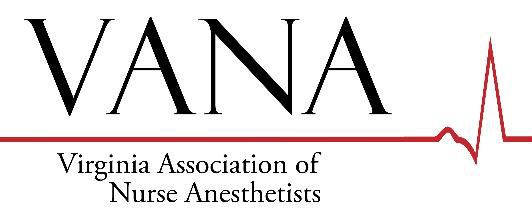Snyder: CRNAs stand ready to serve Virginia patients

Original Roanoke Times Op-Ed
By: Jean Snyder
This year, the American Association of Nurse Anesthetists celebrates its 90th anniversary. As president of the Virginia Association of Nurse Anesthetists, I would like to congratulate our national organization along with Virginia Certified Registered Nurse Anesthetists and Student Registered Nurse Anesthetists on this occasion.
Now more than ever, Virginians recognize and appreciate access to high quality healthcare, but CRNAs do most of their demanding work out of the public eye. Unless you have had surgery and/or delivered a baby, chances are you have never heard of the highly educated, expertly trained CRNA.
CRNAs are anesthesia professionals who, prior to admission into a nurse anesthesia educational program, have earned a bachelor of science in nursing degree, and have an average of three years of critical care nursing experience.
Before CRNAs are certified, they have as much as eight years of education and training in the science of anesthesiology.
Nurse anesthesia educational programs, including those at Old Dominion University, Virginia Commonwealth University and Georgetown University, offer three-year master’s or doctoral degrees centered on advanced airway management, vascular access, hemodynamics, pharmacology, and physiology related to the field of anesthesiology.
On this anniversary, CRNAs in Virginia would like the public to know who we are and what we do for you. CRNAs provide anesthesia services in operating rooms, obstetrical suites, interventional pain management practices, as well as outpatient procedure centers. We are highly qualified and commitment to delivering high-quality, safe anesthesia care.
CRNAs’ skills and training also put CRNAs at the frontlines of the COVID-19 pandemic. CRNAs and SRNAs stepped forward in ways that few advance practice nurses can, particularly in airway and ventilation management and advanced patient assessment. Not only were CRNAs in Virginia leading ICU intubation teams, but many other CRNAs voluntarily deployed to New York and New Jersey to help colleagues in need. CRNAs in Virginia heard the call to action, and we responded both at home and afar.
CRNAs are qualified to make decisions regarding all aspects of anesthesia care based on their education, licensure, and certification. Throughout the COVID-19 pandemic, the federal government and several governors across the country have made the important decision to remove cumbersome barriers to CRNA practice. Recognizing the critical care skills and airway and ventilatory support we bring in combating this crisis has helped increase the capacity of our healthcare delivery system, meeting the growing demand. As our country recovers from this historic time, it is important to maintain this commonsense approach to improved access and reduced cost.
For more than 150 years, nurse anesthesiology has put the health care and well-being of patients first. Nurses first provided anesthesia on the battlefields of the American Civil War. Today, CRNAs have full practice authority in every branch of the military and are the primary providers of anesthesia care to U.S. military personnel on frontlines, navy ships, and aircraft evacuation teams around the globe.
CRNAs are respected for their advanced skills and complex problem-solving abilities. Now is the time to put an end to any type of pronouncement that questions the role, value, and safety of CRNA-delivered care.
Jean Snyder is president of the Virginia Association of Nurse Anesthetists.

